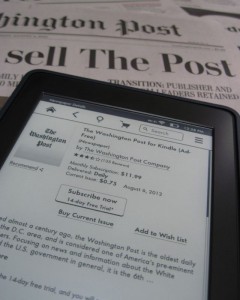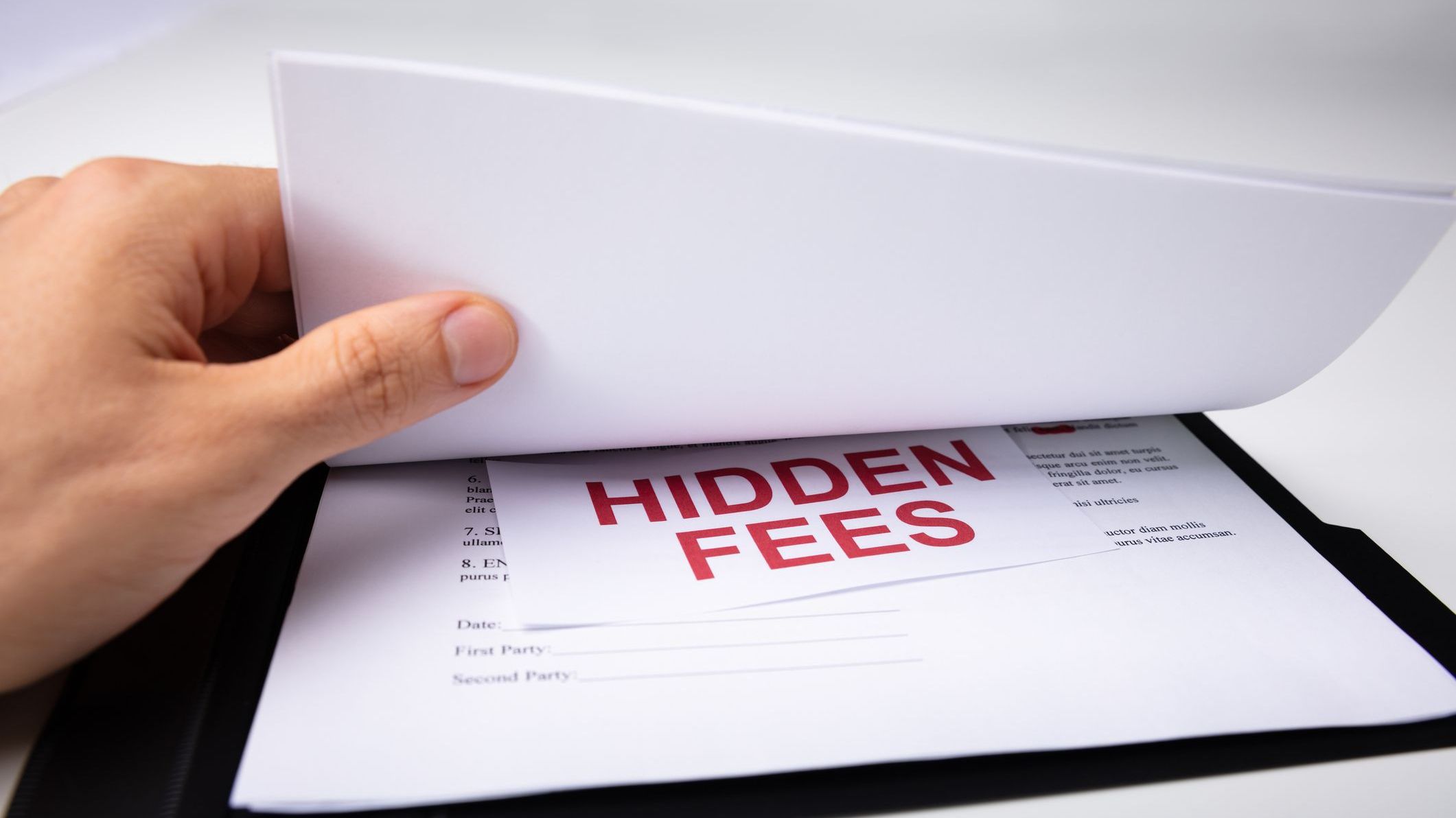Bezos Brings Patient Capital to the Post; It Needs Bold, Persistent Experimentation Too
 A little over 80 years ago, a man with little acquaintance with newspapers bought an ailing daily in Washington D.C. for $825,000. Yesterday, another relative newcomer to print journalism announced he’d buy the same publication for $250 million.
A little over 80 years ago, a man with little acquaintance with newspapers bought an ailing daily in Washington D.C. for $825,000. Yesterday, another relative newcomer to print journalism announced he’d buy the same publication for $250 million.
The Washington Post and the newspaper business have changed greatly since Eugene Meyer’s purchase (about $14.8 million in 2013 dollars). But until yesterday’s news that Amazon founder Jeff Bezos would acquire the paper, the Graham family’s ownership looked fixed as bedrock from throughout the newsroom I worked in for 17 years and to most print and pixel readers.
A day later, it’s easier to see what possessed the Graham family–specifically, Post Co. chairman Don Graham and publisher/CEO Katharine Weymouth, his niece–to sell.
Graham’s memo to Post staffers was clear: “As the newspaper business continued to bring up questions to which we have no answers, Katharine and I began to ask ourselves if our small public company was still the best home for the newspaper.”
But why Bezos? And can he fix things?
It’s not enough to have made a mint elsewhere. Real-estate mogul Sam Zell’s sloppy stewardship of the Tribune Co. sent the company into bankruptcy in less than a year.
This broken business also needs patient capital that can tolerate narrower profit margins. The worst thing that happened to newspapers may not have been the Internet blowing up their business models, but having management thinking they could sustain 20 percent profit margins anyway.
Eugene Meyer, as Posties learn soon enough, ate losses into the 1950s. The situation at the Post today–a $14.8 million operating loss in its latest quarter–is not as bad if you factor in a blessedly, fully-funded pension plan. But things have been going wrong there for long enough that they won’t be fixed quickly.
Print circulation peaked at 832,232 in 1993, the year I joined, and has since deflated to 474,767. Online readership–19 million in the U.S. alone–has boomed but ad revenue hasn’t increased accordingly. Classifieds have taken a particular beating, despite the woeful inadequacy of Craigslist’s interface.
In the newsroom, a painful sequence of buyouts and strongly-encouraged departures (I was one) cut staffing almost in half, from 1,100 to around 600. Morale crumpled, although friends at the paper say it’s ticked up lately.
My old paper also made the same mistakes as others: spending too much on proprietary, print-optimized publishing systems, then pinning too many hopes on detours like “social reader” apps whose appeal quickly faded.
Bezos’s history suggests he has a little Meyer in him. Amazon didn’t turn a quarterly profit until 2001, after racking up $2.8 billion in losses, and still scrapes away at profit margins to build out digital and physical distribution infrastructure.
Further, Bezos has already sunk a decent chunk of his own net worth–some $23 billion after the Post purchase–into propositions with little to no hope of making money soon.
His expedition to recover sunken Saturn V rocket engines from the Atlantic comes to mind, but if you’re a newspaper fan you may be more interested in his backing of the commercial-spaceflight venture Blue Origin. You have to hope Bezos regards both daily journalism and lowering the cost of access to Earth orbit as interesting and difficult problems he is fortunate to be fit to tackle.
And as you may have heard, Bezos knows a bit about Web media: catching visitors’ attention, turning visitors into regulars (in e-books, with help from publisher-mandated DRM that binds readers to its Kindle Store), and distributing online content rapidly and reliably. Those are critical skills for news outlets of any size.
(Back in 2009, the Post moved to import some Web smarts from Seattle when it hired Vijay Ravindran after his successes upgrading Amazon’s search and customer-review systems and then Catalist’s voter-turnout efforts.)
At the Post in particular, Bezos’ biggest test will be standing up to pressure from politicians displeased at its coverage. Amazon hasn’t taken the public stances against government surveillance of Twitter, Google, Microsoft and other more recent converts; Bezos’ nod to Eugene Meyer’s tell-the-truth principles and to the Post’s history of afflicting the comfortable in his first memo to the staff was a good step but only a start.
The problem for journalism in general is that a billionaire buyout is not a scalable solution. But I don’t think any one fix–paywalls, an events business, hyperlocal coverage, whatever–will work across the board. It will take years of bold, persistent experimentation. And if Bezos’ vote of confidence in that possibility gives other newsroom managers a little more latitude, it’s worth the risk of failure.








